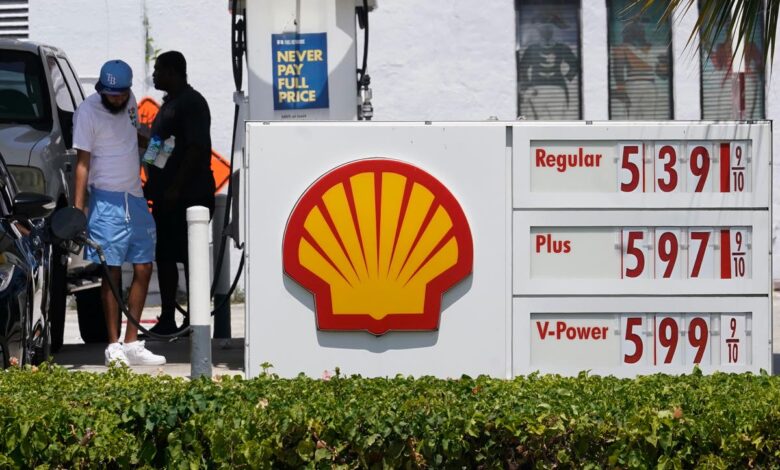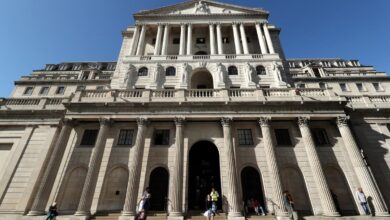Shell records £8bn profit as Britons face soaring bills and threat of blackouts

Oil giant Shell recorded profits of £8 billion ($9.5 billion) in the third quarter as Britons face soaring energy bills and the threat of blackouts.
Shell made big gains from selling expensive gas in the third quarter of the year, offsetting part of the fall in oil prices.
Between April and June, Shell reported record profits of £9.84 billion ($11.4bn) as oil prices surged to £88 a barrel.
Since then, energy prices have fallen back but remain at elevated levels.
So far this year, Shell has reported £25 billion in 2022 which is more than double the amount it made over the first nine months of 2021.
The business announced that it would return a further £3.4 billion ($4 billion) to shareholders by buying back shares from them. The buyback is expected to have been completed in approximately three months from now.
Chief executive Ben van Beurden said: “We are delivering robust results at a time of ongoing volatility in global energy markets.
“We continue to strengthen Shell’s portfolio through disciplined investment and transform the company for a low-carbon future.
“At the same time we are working closely with governments and customers to address their short and long-term energy needs.”
The government imposed a 25 per cent windfall tax on energy companies. However, the tax applies to profit made in the UK which, for most oil and gas companies, is a small part of their operations.
The government was also forced to intervene last month to freeze the price cap as average families faced paying £5,000 for their energy bills in January 2023.
It comes as the head of the National Grid also warned British households that blackouts may be imposed between 4pm and 7pm on “really, really cold” winter weekdays if Europe cuts gas exports.
John Pettigrew said electricity and gas may be switched off on “those deepest, darkest evenings in January and February” if energy supplies from Europe prove insufficient due to the disruption of the war in Ukraine.
Countries across Europe have been left unable to rely on Russia for their gas as the colder months approach and, despite rationing, analysts said further cuts from Moscow could leave the continent short of supplies.
Britain does not rely on Russia for gas but normally draws on European supplies to keep its power stations running in the coldest months.
Mr Pettigrew said January and February are the months when blackouts are most likely, particularly in a cold snap.
He said the situation could be even worse if wind speeds happen to be low, cutting the effectiveness of power turbines while energy imports were restricted.
In the “worst case” circumstances, power would be cut off to parts of the country for up to three hours “probably between 4pm and 7pm in the evenings on those weekdays when it’s really, really cold in January and February”, Mr Pettigrew said.
He said there was a “huge amount of work” being done by energy suppliers, the regulator and officials to ensure vulnerable households in particular received support should it become necessary to impose blackouts.





